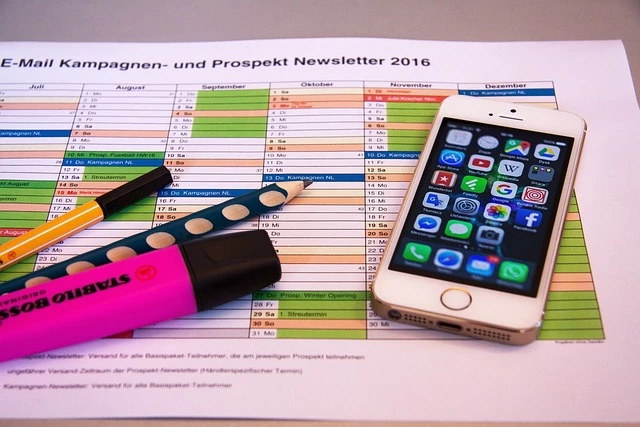As consumers, we’re constantly bombarded with advertisements and marketing messages. It’s easy to get caught up in the hype of a new product or service, especially when it comes to our finances. But have you ever stopped to think about how marketers make us addicted to their finance business partners? The psychology of marketing is a powerful force that can influence our decisions without us even realizing it.
In this blog post, we’ll explore 10 tricks that marketers use to keep you hooked on their finance business partner- and how you can protect yourself from falling prey to their tactics.

The psychology of marketing
Marketing is all about psychology. It’s the art of convincing people to take a certain action, whether it be making a purchase or signing up for a service. Marketers know how to tap into our emotions and desires, using them to their advantage.
One of the key principles of marketing psychology is understanding human behavior. Marketers often use social proof- the idea that we’re more likely to do something if other people are doing it too- as a way to influence us.
Another tactic used by marketers is scarcity. By creating a sense of urgency and limiting availability, they make us feel like we need to act now or risk missing out on an opportunity.
Marketers also understand the power of storytelling in shaping our perceptions and attitudes towards brands. Through compelling narratives, they can create emotional connections with consumers that go beyond just selling products.
Furthermore, we tend to trust authority figures and experts in their respective fields which makes influencer marketing so effective.
Marketers often use repetition as a way to increase brand awareness and build familiarity with their target audience. This technique helps create subconscious associations between certain images or phrases and specific brands/products/services without us even realizing it’s happening.
Understanding these psychological tricks can help you become more aware of when you’re being influenced by marketers -and ultimately protect yourself from falling victim to their tactics

How marketers make you addicted
Marketers are experts at manipulating human psychology to create a sense of addiction towards their products or services. They use various methods and techniques to tap into our emotions and trigger positive feelings that make us want to buy more.
One way marketers achieve this is by creating a sense of urgency or scarcity around their offerings. By telling you that there’s only a limited number of products available or that the offer expires soon, they create pressure to act quickly before it’s too late.
Another trick is social proof – showing you how many people have already used, bought, or reviewed the product positively. This creates FOMO (fear of missing out) and makes us feel like we need to be part of the trend.
Marketers also play on our desire for instant gratification by offering immediate rewards for taking action now. Free trials, discounts, and other incentives can be hard to resist when we’re looking for something quick and easy.
Moreover, marketers tap into our emotions by using storytelling techniques in their advertisements. Stories tug at our heartstrings and help us connect emotionally with the brand – making us more likely to remember them in the future.
Marketers take advantage of cognitive biases such as anchoring – where they set high prices initially so any lower price seems like an attractive deal – which encourages customers to buy even if they don’t really need it!
Savvy marketers understand how human psychology works; hence why these tactics are so effective in getting people hooked onto their finance business partner offerings.

10 tricks marketers use
Marketers are constantly trying to find ways to make their products and services more appealing, often resorting to psychological tricks in order to do so.
Here are 10 common tactics they use:
1. Scarcity – Creating a sense of urgency by making the product seem limited or exclusive.
2. Social proof – Using testimonials or celebrity endorsements to show that others have had success with the product.
3. Fear of missing out (FOMO) – Making customers feel like they’ll be left behind if they don’t buy into the offer right away.
4. Anchoring bias – Setting an initial high price for a product, then offering discounts which make it seem like a good deal.
5. Reciprocity – Offering something for free in exchange for contact information or social media follows/likes/shares.
6. Framing effect – Presenting information in a way that emphasizes certain aspects over others in order to influence perception and decision-making
7. Authority – Using authority figures such as doctors, scientists or experts who endorse the brand or product
8. Sex appeal – Often used in advertising where sexiness is linked directly with the business partner
9. Personalization – Tailoring specific marketing messages based on consumer preferences and interests
10. Fantasy Appeal – Selling dreams through advertisements where consumers can’t resist but imagine themselves being rich when partnering with this finance company

Conclusion
Marketers are experts in manipulating our emotions and desires to make us addicted to their finance business partner. By using various psychological tricks, they can create a sense of urgency, scarcity, and social proof that makes us feel like we need their services. However, it’s important to be aware of these tactics and protect ourselves from falling into the trap of marketing addiction.
To avoid being manipulated by marketers, we should educate ourselves on how marketing works and learn how to recognize when we’re being targeted. We should also take the time to research different finance business partners before making any decisions so that we can choose one that best fits our needs rather than just following what everyone else is doing.
Remember: marketing isn’t inherently evil; it’s just a tool used by businesses to reach customers. By understanding how it works, we can use it to our advantage instead of becoming its victim.
See More: Bomb an Interview with Your Dream Automobile Company












Leave a Reply